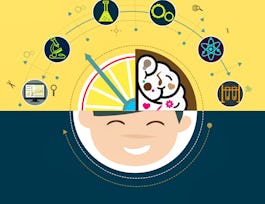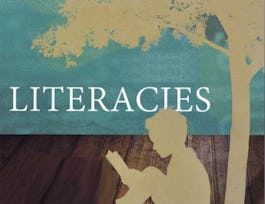Are you a teacher in higher education wanting to get the best out of your students and assessments? Then on behalf of Risbo, Erasmus University Rotterdam, we would like to welcome you to this MOOC on Assessment in Higher Education. In this MOOC we will guide you through the different phases of preparing, creating and evaluating the assessments in your course.


Assessment in Higher Education: Professional Development for Teachers
Taught in English
Some content may not be translated
18,135 already enrolled
(361 reviews)
Details to know

Add to your LinkedIn profile
1 quiz
See how employees at top companies are mastering in-demand skills


Earn a career certificate
Add this credential to your LinkedIn profile, resume, or CV
Share it on social media and in your performance review

There are 6 modules in this course
In the first week of this course you’ll get insight in some basic but fundamental questions about assessment. Why do we assess in higher education? What are possible positive and negative effects of assessment? And in what way can we make an effort in choosing the most appropriate assessment method(s). Some leading experts on assessment are introduced to you and might enlighten your thoughts. Additionally, you will be introduced to the Utility formula, which will assist you in making purposeful assessment choices.
What's included
7 videos3 readings1 discussion prompt
What's included
1 video1 reading
As research shows, assessment plays an important role in steering the learning process. There is, however, not one best method of assessment. So, how can you select the right methods of assessments for your course? Making an assessment plan can help you select the right testing methods and decide on the relative weight of each assessment for the final result of a course. An assessment plan also helps to ensure that the assessment addresses the intended learning outcomes. In addition, it provides a good overview of the test arrangement for a course that will be published in the course manual. This makes an assessment plan a helpful tool for examiners and an important instrument for quality assurance. With an assessment matrix, you ensure that all the selected learning objectives are covered in your assessment. This also helps to ensure that your assessment will be both valid and reliable. Whereas making an assessment matrix may feel like additional work, using it will actually save you time as you will develop questions and assignments that exactly match your learning objectives and you avoid the risk of formulating too many questions that are aimed at the same content or skill.
What's included
12 videos12 readings3 discussion prompts
In module 1 you have learned about assessment FOR learning and the role assessments play in the learning process of students. In this module we will take this to the next step. You will learn why feedback is so important and how to provide feedback using rubrics. Did you know there are different types of rubrics? Depending on the function of the rubric each type has both its advantages and disadvantages. This module will help you deciding what type of rubric suits your needs. In the stage of grading, methods of setting a cut-off score are important. You will learn about different methods of setting a cut-off score and the advantages and disadvantages of these methods.
What's included
5 videos4 readings1 peer review4 discussion prompts
The results of student assessments often have far-reaching consequences for their educational or even professional careers. When we allow our assessments to have such impacts on people’s careers, it is of the utmost importance that we are very sure that our measurement is reliable and accurate and a valid representation of students’ actual abilities…. Unfortunately, that is not always the case. The goal for this module is to help you to apply quality criteria for the construction of assessments and assessment items. Because, if we improve the quality of our assessments, we improve the quality of our education, and we will have a huge impact on the future education and careers of our students.
What's included
10 videos8 readings2 peer reviews
When an assessment has been conducted, there is often a lot of time pressure on grading and publishing the results. However, an important step to take before communicating grades to students is to analyse students’ performance on the different tasks or questions. This will provide you, as an examiner, with invaluable information. Not only about your students’ performance, but also about the quality of your assessment as well as your own teaching. On which aspects did students perform well, and where did they fail? If good students fail on certain questions, what does this say about the question… or about your teaching? You may need to decide on how to fix certain errors or unexpected situations and think about how this affects students’ grades. What are the things to consider when performing an exam or item analysis? What do you look for? How do you draw conclusions and make plans for future improvements?
What's included
4 videos5 readings1 quiz2 discussion prompts
Instructors



Offered by
Recommended if you're interested in Education

University of Science and Technology of China

Banco Interamericano de Desarrollo

Tsinghua University

University of Illinois at Urbana-Champaign
Why people choose Coursera for their career




Learner reviews
Showing 3 of 361
361 reviews
- 5 stars
83.74%
- 4 stars
12.67%
- 3 stars
1.92%
- 2 stars
1.10%
- 1 star
0.55%

Open new doors with Coursera Plus
Unlimited access to 7,000+ world-class courses, hands-on projects, and job-ready certificate programs - all included in your subscription
Advance your career with an online degree
Earn a degree from world-class universities - 100% online
Join over 3,400 global companies that choose Coursera for Business
Upskill your employees to excel in the digital economy
Frequently asked questions
Access to lectures and assignments depends on your type of enrollment. If you take a course in audit mode, you will be able to see most course materials for free. To access graded assignments and to earn a Certificate, you will need to purchase the Certificate experience, during or after your audit. If you don't see the audit option:
The course may not offer an audit option. You can try a Free Trial instead, or apply for Financial Aid.
The course may offer 'Full Course, No Certificate' instead. This option lets you see all course materials, submit required assessments, and get a final grade. This also means that you will not be able to purchase a Certificate experience.
When you purchase a Certificate you get access to all course materials, including graded assignments. Upon completing the course, your electronic Certificate will be added to your Accomplishments page - from there, you can print your Certificate or add it to your LinkedIn profile. If you only want to read and view the course content, you can audit the course for free.
You will be eligible for a full refund until two weeks after your payment date, or (for courses that have just launched) until two weeks after the first session of the course begins, whichever is later. You cannot receive a refund once you’ve earned a Course Certificate, even if you complete the course within the two-week refund period. See our full refund policy.





